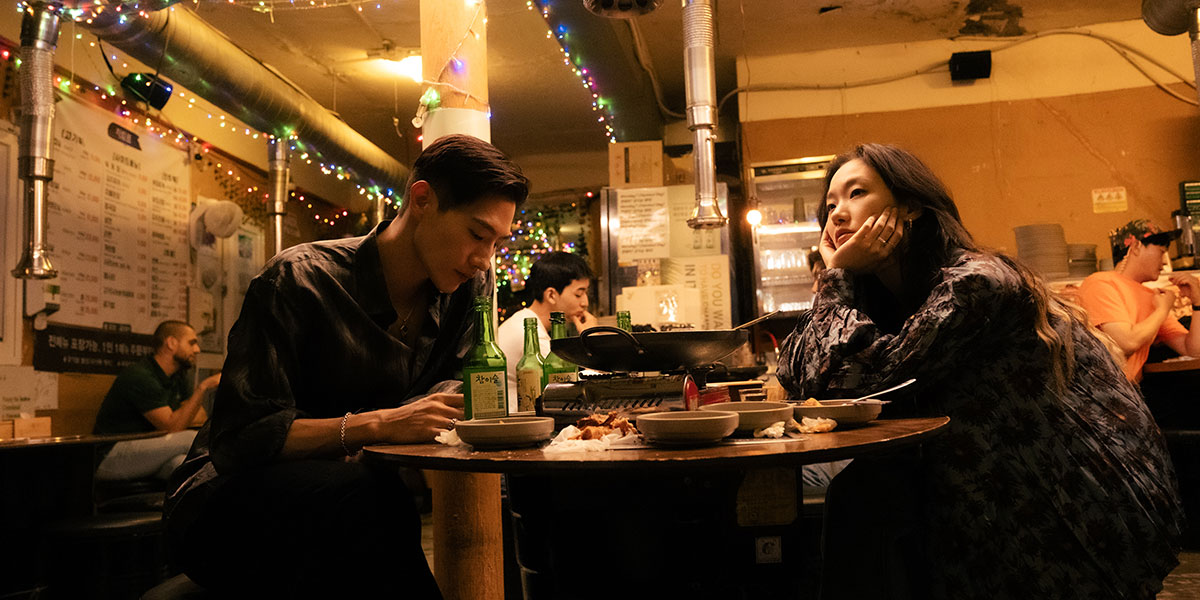The Lives of International Students in Canada’s Most Diverse City
By Chloe Cook and Severina Chu
Every year, thousands of international students come to Canada in hopes of improving on their education and experiencing a new culture.
From their education to their lifestyle, these students encounter multiple challenges and changes that they must adapt to.
Being away from home has forced them to learn to face obstacles such as culture shock and living alone in order to engage in their new Canadian lifestyle. Each of these four international students have their own ways of adapting to life in Canada. Here’s a look into the challenges and rewards that they’ve experienced during their time here.
Divyansh Chandel
Divyansh Chandel, 22, is an aerospace engineering student from Kuwait, India. (CanCulture/Chloe Cook)
Divyansh Chandel has spent the last four and a half years adding everything from president of the Engineering Student Society, to International Student Director at the Ryerson Students’ Union to his impressive resume. On top of that, he has two startups under his belt and he is currently organizing a presentation for retired astronaut and engineer, Chris Hadfield.
“Every time I’ve taken a step to do something innovative, Canada has helped me.” Chandel said about his multiple endeavours.
In 2014, he moved to Toronto from Kuwait, India to begin an aerospace engineering degree at Ryerson. However, Canada was not his first choice. He originally applied to schools in the United States but his parents urged him to look into a Canadian education stating that it was a much ‘nicer’ place.
“When I was in twelfth grade applying, my love for Canada started growing. Everyone’s so friendly, everyone’s so accepting and that’s one of the reasons I came to Canada.” Chandel said.
However, Ryerson did not entirely live up to his expectations. “I grew up with these university party movies, I didn’t expect Ryerson to be a commuter school. I thought it would be like Queen’s or Western. I thought that’s what every weekend would be,” he explained.
When Chandel came to realize that he wouldn’t be bonding with his peers over beer pong and karaoke, he took it upon himself to meet other international students like himself. He started volunteering his time to various clubs and organizations to meet new people.
As the International Student Director, he has begun to implement events such as the International Students’ Welcome Lunch, that allowed students from all over the world to meet each other and form connections as they started their school year.
While Chandel has enjoyed his time in Canada, it has not always been easy. Moving to a new country is bound to give you at least a few culture shocks and difficulties. For Chandel, one of the most difficult things about the transition was keeping in touch with his family in Kuwait.
“It was very hard in the start. I tried to have one Skype video call every weekend and at least check in with them on WhatsApp or Messenger everyday. They would check in with me too. As I got busier, it got harder,” he said.
His mother and sister moved to Canada in January of this year, so it is slightly easier to stay in contact with them now, however with his father still in India, it’s still just as difficult.
Despite this, Chandel says that he has no regrets coming to Canada. When asked about the biggest advantage his move had for him, he responded, “If you take an initiative, Canada rewards you for that initiative and that’s what I love about Canada.”
Adela Zyfi
Adela Zyfi, 22, is a student from Albania who is studying biomedical science with a minor in Spanish. (CanCulture/Chloe Cook)
Adela Zyfi moved to Toronto from Tirana, Albania in Grade 12 in search of a better education.
“There’s a lot of corruption within the education system, so unless you pay a lot of money, you probably won’t get in,” she said, “There’s little to no chance you’re going to get a good education.”
Zyfi chose Canada because it’s an English speaking country with some of the most lenient immigration laws in the world, which helped make her decision easy. She plans on becoming a permanent resident in Canada after she graduates to help her pursue career opportunities unavailable in Albania.
Something that was difficult to get used to in Toronto for Zyfi was the diversity. Up until around 20 years ago, Albania was a communist country with a very strict immigration system in which the country was almost entirely isolated from the rest of the world. Due to the fact that nearly no one new could come into the country, Albania did not have a very diverse population.
“Coming here, I was shocked. I was like, ‘Oh my God! I have never seen people that look different than me!’” she said, “It was really awesome and I love it, but it is one of the things that really hits you.”
Moving to Canada has given her a lot of opportunities, but it has also come with its own set of challenges and barriers. Although Zyfi could speak English, Albanian, and Spanish, she said that the language and culture barrier was still difficult to maneuver around during her first years in Canada.
“I may have known English from a book, but you miss little jokes or references from shows and movies and things that are in North American culture. People would make a reference to a food or thing or a person and I would have no idea, I’d be so lost,” she said.
Another barrier that Zyfi found difficult to overcome was the 20-hour work week limit put in place by the Canadian government to ensure international students are focusing on their studies.
“Our expenses are so high that 20 hours on minimum wage is not going to cover anything, especially living in Toronto,” she said.
She stated that this rule puts a lot of students in a tough situation where they must choose whether or not to accept “precarious, under-the-table work” in order to meet their needs.
While Zyfi is enjoying her life in Canada, it is just temporary. She aims to continue travelling and seeking opportunities around the globe once she gains permanent residency in Canada.
Paula Lozada
Paula Lozada, 19, hopes to become a Canadian citizen in order to bring her family here. (Courtesy of Paula Lozada/Instagram)
Paula Lozada was just 16 years old when she came to Canada by herself.
Lozada was born in Dubai, where her family currently resides as she studies abroad. Currently studying business administration management at Seneca College, Lozada knew that leaving her family behind to come to Canada was a decision that would benefit her in the future.
“When I was in high school, most of my teachers were Indian. There was one specific teacher who was British but because she was white, she earned triple compared to other teachers,” she said, “Basically, if you’re coming from the West and you show that you have a degree from here, they’ll really invest a lot in you when you go back home.”
When talking about living alone in a foreign country, she admitted that there were difficulties.
“My first year here, I didn’t have any work experience from back home.” Lozada started out in door-to-door marketing, which she admits wasn’t the best experience. She then switched to retail and currently works at Nordstrom.
Another difficulty was contacting her family due to the ban in Dubai of multiple messaging platforms. Which leaves Lozada and her family limited to texting.
“It’s hard because back home, Skype is banned, calls on WhatsApp are banned, any social media calling or video chat is banned. It’s harder to keep in contact,” she said.
However, Lozada has still found ways to keep in touch with her culture and feel at home.
When she began volunteering at the Filipino festival, Taste of Manila, she was able to meet more people from the Filipino community. She also mentioned the Underground Dance Centre as one of her favourite places to go when she starts to feel homesick.
“Back home, my family and I would go dancing every weekend. (The Underground Dance Centre) is this non-profit organization where all of the people who are away from their families gather and dance,” she explained. “Whenever I can, I go to Underground because it makes me feel at home.”
But the one thing from home she can’t seem to get? The food.
There are several Filipino restaurants in Toronto, but nothing can compare to the authenticity of home cooking. “Sometimes I crave Filipino food or my dad’s cooking. I try to make it myself, but it’s not the same,” she said.
Despite the lack of home cooking, Lozada has made herself comfortable in Canada.
Her hope for the future is to become a Canadian citizen. She hopes to graduate and stay in Canada for a few more years in order to get her full citizenship. “I want to get the Canadian passport. Then, I’d help move my family here because life here is easier.”
Soumya Gupta
Soumya Gupta, 21, is on exchange from India and is currently studying graphic communication management at Ryerson University. (CanCulture/Chloe Cook)
When the opportunity came up to study abroad, Soumya Gupta took the chance.
Though she was already studying two hours away from her hometown back in India, coming to Canada would be a new challenge. She chose to study graphic communication management at Ryerson University, which was similar to the graphic design major she was doing back home. This would be her first time out of the country, and her first time having to adapt to a new culture.
“It’s been a journey of ups and downs,” she described. “Moving away in India was easy because you’re aware of the culture and you know what to expect. Moving here, I kind of experienced culture shock.”
The culture shock came in terms of the education itself, Gupta saying that things are taught “more detailed and precise” in Canada and how the content she was learning differed from back home.
Gupta has only been in Canada for a month but through her exchange program, she’s been able to meet international students from across the globe. “A month ago, I hadn’t met anyone from any other countries. Now, I have friends from five or six countries,” she said.
Even though she’s been exposed to so many new cultures, Gupta is still able to surround herself with people who remind her of home.
“The people that I’m staying with are both exchange students from India, and we have a few more friends from India as well,” she told us. Being surrounded by people from home has helped her adapt, especially since language is not a barrier between them. She told us that every so often, her and her friends will get together and have a night in.
There are also things in the city that have helped her feel at home. For instance, when the RSU Wellness Centre was offering an Indian dance activity, she was able to meet more Indian people while getting a good heart pump. In addition, she prefers to explore the cuisines in the city that she cannot get in India.
Due to Gupta’s exchange only being for one term, she will be going back to India by December to finish her final year to get her degree. She then plans to continue school and do her masters in graphic design.
When asked if she would consider coming back to Canada, she said that it was too early to commit, though it’s still a possibility. “I always want to go back to India because the attachment will always be there. But if the opportunities are better in places like Canada, I might come back,” she said.
The Myth of Being Rich
Although all four of these students’ experiences in Canada have been vastly different, one idea was consistent among them – that the stereotype that international students are rich should be laid to rest. The widely believed notion that international students are beyond affluent is, more times than not, inaccurate and often offensive.
For Lozada, the stereotype has always made her uncomfortable. “I’ve met people who are rich, but there’s also some people who are international students and are still struggling.”
Chandel shares the same sentiment. “Some international students are getting government funds, some of them their parents have scraped together everything they could to educate their child. So one of the biggest stigmas that I don’t stand with is that international students are rich.”
Zyfi noted that while many people think international students are rich, many of them are putting themselves at risk for a paycheque. “A lot of international students find themselves in a not safe or risky position because they need to make money to support themselves.”
No matter where they came from or what they came for, these four students and many others like them, have uprooted their lives to find better opportunities in Toronto and to improve the quality of life in the city we live in.









